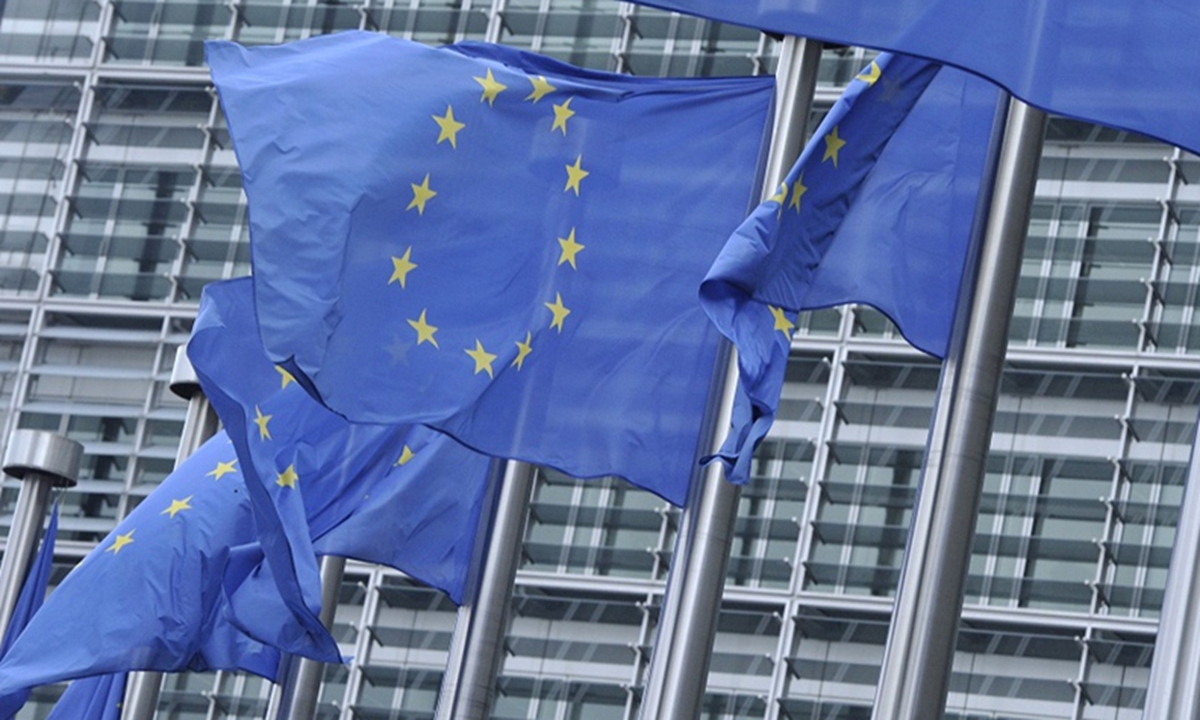
The European Union flags in front of EU headquarters in Brussels, Belgium. Photo: Xinhua
An EU chamber report on Wednesday said that the confidence of European companies in China has dropped significantly. Chinese experts said what the report truly reflects is that the real source of the companies' waning confidence is EU's "de-risking" moves, especially after the blog unveiled an "economic security" strategy.
There has been a significant deterioration of business sentiment among European companies in China, according to Business Confidence Survey 2023 released by European Union Chamber of Commerce in China.
"Eleven percent of respondents have shifted existing investments out of China, and 8 percent have taken the decision to move future investments previously planned for China elsewhere," the annual survey reported.
The report is not so much a response to China's business environment and policies, but rather a response to the fact that EU's tightening investment and economic and trade policies in the name of "de-risking," Cui Hongjian, director of the Department of European Studies at the China Institute of International Studies, told the Global Times.
European companies investing in China are actually subject to more constraints and restrictions from the European side rather than the Chinese side, Cui said.
The European Commission, the EU's executive arm, unveiled a European Economic Security Strategy on Tuesday, using the phrase "de-risking," which is widely regarded as reducing economic reliance on China.
The EU's restrictions and conditions on corporate investment have been increasing over recent years. EU's new economic security strategy is a further organization and implementation of the previous measures, which is the real source that undermines the confidence of European companies in China, Cui said.
European investment in China reached $12.1 billion in 2022, a substantial increase of 70 percent year-on-year, according to data from the Ministry of Commerce of China.
European direct investment in China's auto industry reached 6.2 billion euros in 2022, compared with only 1.7 billion euros in 2018, according to data from Rhodium, a US research group.
The Chinese market is innovation-leading and very attractive. Siemens highly values the opportunities offered by the development of the Chinese market and will continue to expand its manufacturing capacities in China and improve research and development efforts, said Roland Busch, president and CEO of Siemens AG, the Xinhua news agency reported on Tuesday.
Cutting ties with China would be "unthinkable for almost all of German industry" and disengaging from China makes no sense, chief executive of Mercedes-Benz Ola Källenius said at the end of April, according to a Financial Times report.
From the perspective of economic laws, the Chinese market is highly attractive to European companies in terms of business environment, market size and manufacturing level, but the EU's "de-risking" has twisted businesses' sentiment toward China, Cui said.




